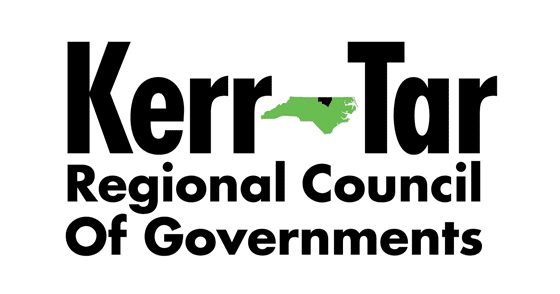State law requires that residents report suspected cases of elder abuse to the local Department of Social Services. But what, exactly, constitutes elder abuse? Learn more about this subject on June 15 at the Vance County Senior Center.
The Kerr-Tar Council of Government’s Agency on Aging is hosting an event to mark Elder Abuse Awareness Day from 9 a.m. to noon. The morning will be filled with resources from more than a dozen vendors from the five-county area that KTCOG serves, with activities designed for older adults and others interested in learning more.
The first 200 participants will get a t-shirt and a box lunch, compliments of two area long-term care facilities, and there will be goodie bags and various presentations during the morning designed to increase awareness of elder abuse. Aim High, a local health and wellness center, will discuss ways for older adults to remain active.
KTCOG Regional Ombudsman Kim Hawkins spoke with John C. Rose on Wednesday’s TownTalk and explained more about signs of elder abuse and the process that DSS representatives and others take to help keep disabled adults safe.
Mistreating older adults, no matter the form it takes, is not only wrong, it’s a crime.
A report may be made anonymously, Hawkins said. Once a report is received, the local DSS adult services unit will assess the information to determine whether the individual is in need of protection.
“It’s an intensive intake process,” she said, but the end result is to make sure that the report meets the criteria to be investigated. A team discusses the information and then, when warranted, makes contact with the individual to offer services.
As an ombudsman, Hawkins said she tries to encourages individuals to consent to services, or to get someone they feel comfortable talking with to relay the information to DSS on their behalf.
She said residents report incidents, but also medical professionals, outreach workers and others also have reported suspected abuse, neglect or exploitation of a disabled adult.
“We go out and monitor the facilities and visit,” Hawkins said, adding that she has received calls from individuals who wish to remain anonymous about paying a visit to a facility.
“Residents have called and asked to come visit,” she said, and she will inform DSS officials when she gets calls from those who don’t want to give their name.
It’s not necessary to contact the ombudsman to report suspected abuse situations, Hawkins said. “You can bypass the ombudsman process and call DSS directly,” she explained. “It’s more important…that it gets reported and reviewed,” she added.
People want to help, but often don’t want to get involved, Hawkins said. In some situations, the suspected abuser may be another family member, which makes the anonymous reporting important to avoid undue stress.
Although difficult to prove, mental or psychological abuse is perhaps most often reported. Hawkins said when she is investigating such cases, she and Adult Protective Services representatives look for how the individual’s reactions. One resident of a long-term care facility suffered anxiety attacks requiring hospitalization following verbal abuse from a facility administrator, she said.
Often, the mental or psychological abuse eventually will manifest in physical ways, validating the charge of abuse. By the way, Hawkins said the administrator was ultimately fired from the facility in that particular case.
Hawkins estimates that cases of elder abuse are under-reported, and added that in addition to reporting cases, it is important to educate others about elder abuse.
“Education is one of the biggest ways to prevent elder abuse,” she said. Empowering disabled adults through awareness and education is important.
Hawkins said she is planning a virtual meeting on the Zoom platform on June 9 that will be geared to residents of long-term care facilities, but it is open to others who may have family members or loved ones in a long-term care facility.
Please call the KTCOG at 252.436.2040 for details about how to join the virtual meeting, which should last 30-45 minutes.
Following is the list of phone numbers for the departments of social services in the five-county region served by KTCOG:
Vance: 252.492.5001
Granville: 919.693.1511
Warren: 252.257.5000
Franklin: 919.496.5721
Person: 336.599.8361
Following is a list of the eight most common forms of elder abuse, according to the website www.worldelderabuseawareness.com
- Self-Neglect – Refusal or failure to provide himself/herself with adequate food, water, clothing, shelter, personal hygiene, medication (when indicated), and safety precaution.
- Physical Abuse– The use of physical force that may result in bodily injury, physical pain, or impairment; or any physical injury to an adult caused by other than accidental means.
- Neglect by Others– Failure to provide the basic care, or services necessary to maintain the health and safety of an adult: this failure can be active or passive.
- Sexual Abuse– Sexual contact with a non-consenting adult or with an adult considered incapable of consenting to a sexual act.
- Financial Abuse– The illegal or unethical exploitation and/or use of an elder’s funds, property, or other assets.
- Mental Abuse– Verbal or emotional abuse includes threatening significant physical harm or threatening or causing significant emotional harm to an adult through the use of: Derogatory or inappropriate names, insults, verbal assaults, profanity, or ridicule; or harassment, coercion, threats, intimidation, humiliation, mental cruelty, or inappropriate sexual comments.
- Abandonment – the desertion or willful forsaking by anyone having responsibility for care.
- Isolation– Preventing the individual from receiving mail, telephone calls, or visitors.
The website also lists some of the signs that could indicate an individual may be experiencing some type of elder abuse:
- Lack of basic amenities
- Cluttered, filthy living environment
- Unexplained or uncharacteristic changes in behavior
- Unexplained sexually transmitted diseases
- Unpaid bills, new credit cards and/or increased cash withdrawals
- Harassment, coercion, intimidation, humiliation
- Caregiver isolates elder
Learn more about elder abuse awareness at https://worldelderabuseawareness.com/
CLICK PLAY!
